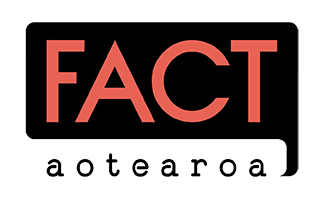The differences between New Zealand’s elections and the United States are vast. Some people in New Zealand are recycling America’s false “stolen election” conspiracy theories here when it just doesn’t make sense.
Explainer: what’s to stop people from voting twice?
September 14, 2023
It's highly illegal, but what else is stopping people voting twice in the 2023 General Election? It's gonna waste both votes. And the safeguard is good old paper records. Read on to find out more.
The Claim
Some people think election results could be changed by casting multiple votes. And it does seem like there’s not much stopping you…
The Facts
It’s true that you can go to more than one polling place and vote twice. But it’s also true that because of the process of crossing voters off the paper roll, your double vote would be caught and both votes would not be counted. It’s also illegal and anyone caught would face charges. So this strategy won’t work.
- Voters are crossed off the printed electoral roll at the polling place where they vote
- The rolls from each polling place are compared during the official count
- If more than one vote is found from the same person, all those votes are discarded and not counted
Going Deeper
It’s possible that a person could go to more than one voting place and vote at each one.
But there’s a system to catch that. When a person votes, the voting place workers record that they voted by literally crossing them off the paper copy of the roll. If a person turns up asking to vote in the same name, they can vote… but their ballot paper is set aside for later checking (see s171 of the Electoral Act). And when the official count is done, the paper roll copies are compared. If more than one vote was cast for the same person, they are all discarded, unless the Returning Officer can determine that one of them was genuinely made by the named voter and that voter wasn’t responsible for any of the other votes in their name (see s176 of the Electoral Act).
This is also why it’s unlikely that voting in other people’s names could work as a strategy. New Zealand’s voter participation is high (over 81% in 2020). If a cheater tried to vote in someone else’s name, there’s an 80% chance the other person would vote too, meaning neither vote would count.
A person could try voting illegally more than once if they could get around enough polling places and vote under different names. They’d need to find places where neither they nor the name of the voter they are impersonating is recognised by staff or scrutineers. They would risk prosecution. Even if they are not caught it’s likely that most of the illegal votes would be identified and removed. Very few candidates lose by fewer than 400 votes and it takes more than that to add a party seat. Seats with cliffhanger numbers after the election are often a surprise.
Beyond that, instances of double voting in New Zealand are very rare – probably much rarer than people telling their friends they voted twice. The kind of large-scale, systematic effort that would produce meaningful changes in an election result would be unlikely to remain under the radar.
However, seeding doubt about election results has been a useful strategy overseas. It has made itself obsolete through unreasonable overuse in the American courts so is unlikely to move beyond fringe groups here. But preparing the ground for post-election shenanigans is a cheap investment in the unlikely event that a conspiratorial candidate loses by a small margin. We hope dignified concessions and legitimate recounts follow the election this time, as they usually do in New Zealand.
Further Reading:
More FACTs
Why are conspiratorial parties so worked up about co-governance?
Co-governance between Māori and the Crown has a long history in this country. So why has it been turned into an election issue for conspiracy theorist parties and an apocalyptic vision by an end-times preacher?
Fringe parties and their COVID policy
All of the policies demanded by parties seeking the “freedom movement” vote are already government policy, except stopping the vaccine rollout. So why are they calling for that and why do they want an “independent inquiry”?



